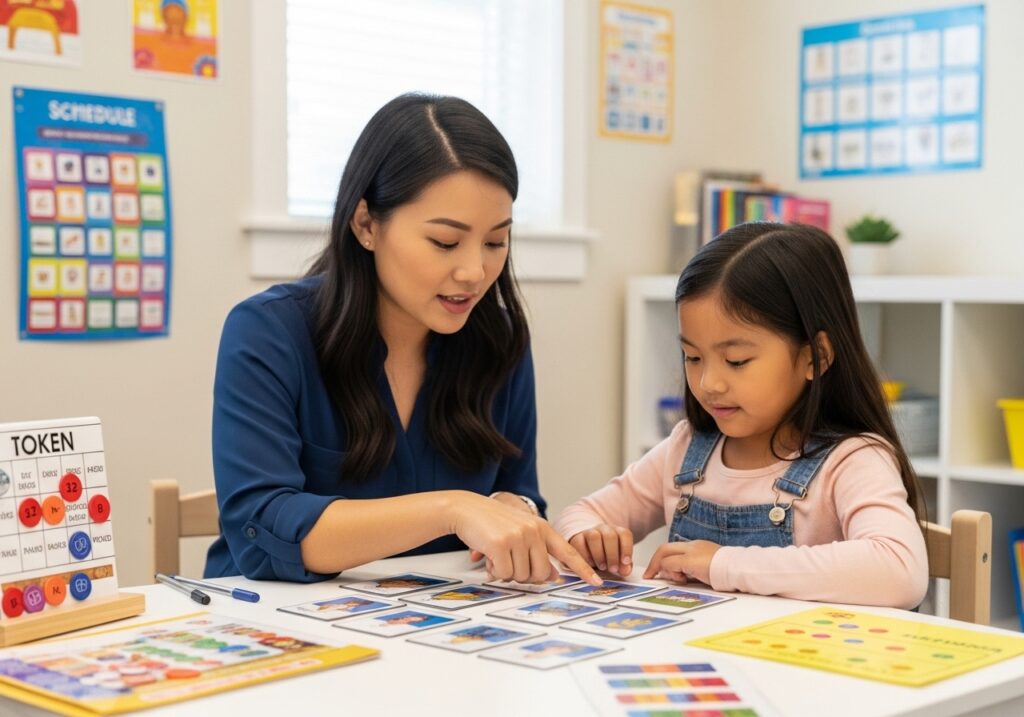
Children and adolescents who struggle to transition off devices, experience big reactions when screens are removed, or find that games, social media, or videos are crowding out sleep, homework, family time, or offline play.
This programme supports neurodiverse and neurotypical learners from about 4 years old through secondary school.
Screen time becomes a concern when it consistently interferes with daily functioning. Common signs include:
Led by our Clinical Director, Dr Dominic Leong (BCBA-D), we use Applied Behavior Analysis (ABA) to teach the skills that sit underneath healthy digital habits.
We prioritise positive behaviour, regulation, and prosocial participation rather than simple restriction. Core elements include
Our Screen Time Dependency & Digital Habits Programme is designed not just to reduce reliance on devices, but to equip families with practical tools and strategies that work in real life across situations.
What makes our programme unique:
Guided by BCBA-D leadership and grounded in a modern, positive ABA model that reflects the latest research and ethical standards
Aim-to-fade approach ensures families become independent with strategies quickly, with plans co-designed to respect your family’s values and culture
From the very first session, we plan for generalisation so positive changes show up not just in sessions, but at home, in school, and in daily routines.
Screen time plans are linked with broader needs like sleep hygiene, emotion regulation, social skills, and executive functioning, while working alongside schools to embed simple, effective support
No. We build sustainable habits. We teach skills for requesting, waiting, transitioning, planning, and choosing alternatives. Families co-design realistic rules that they can keep using.
We rarely recommend blanket bans. We pair limits with skill building and meaningful alternatives so the plan survives beyond the first week.
Many families see early wins in two to four weeks, including smoother transitions and fewer arguments.
Larger changes in habits, sleep, and homework systems usually develop over one to three months with consistent practice.
The programme is tailored for both neurotypical and neurodiverse profiles. We integrate communication support, sensory regulation, and executive functioning strategies so expectations are attainable.
With consent, we share a concise strategy sheet for teachers that fits existing routines. Examples include preferred seating, a movement break card, or a simple work system.
Yes. We coordinate with psychologists, paediatricians, counsellors, occupational therapists, and school counsellors when helpful. Sleep or mood concerns are referred appropriately.
Disclaimer: This article is for informational purposes only and should not replace professional medical advice. If you have concerns about your child’s development, please consult with a qualified healthcare professional for proper assessment and guidance.
Book a free discovery call with us